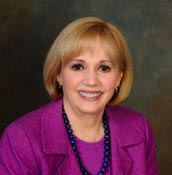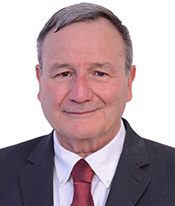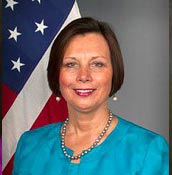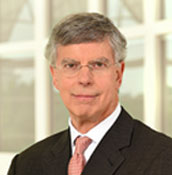Since 2020, the U.S. Institute of Peace Peace – in partnership with USAID – has convened the Elite Capture and Corruption of Security Sectors Working Group to study how manipulation of the security sector for personal, political or financial gain by powerful groups can contribute to violence.
Elite Capture and Corruption of Security Sectors
Through expert study, research and a public report, the working group has distilled the phenomenon sufficiently to identify leverage points where policy and action might effectively address the problem.
Research has shown that there are several incentives and tactics through which elites can use security forces for private interests. Elites can manipulate recruitment, appointments, finances, administration and operations to extract rents and accumulate wealth; to maintain clientelist networks and political coalitions; to prevent internal threats to the regime and repress opposition; or to target insurgency and other asymmetric threats. As systems designed to ensure accountability are weakened or corrupted, security forces can contribute to human rights abuse or fuel grievances and extremist ideology.
The working group’s final report:
- Documents how elites may pursue gains contrary to the public interest through the security sector as well as how such practices can contribute to violence.
- Examines how U.S. security assistance may affect dynamics, rationales and tactics of elite capture.
- Recommends how donor countries, multilateral organizations, civil society and academia can help address security challenges in contexts where the security sector has been captured by powerful groups.
The report’s four country case studies — Afghanistan, Mexico, Uganda and Ukraine — each examine specific dynamics of elite capture.
The working group has been guided by four co-chairs: Ambassadors Anne Patterson, Karl Eikenberry, Dawn Liberi, and William Taylor. Each co-chair is a former U.S. Ambassador who has operated at the intersection between U.S. policy and security assistance and has long-standing experience in either diplomacy, defense or development.
The working group is composed of an executive secretariat featuring USIP staff and researchers. The working group convened affinity group sessions — comprising a wide range of subject matter experts from the U.S. government, multilateral organizations, think tanks, nongovernmental organizations, private sector organizations, academia and civil society — to strengthen its research and analysis.

Final Report
Although many practitioners in the field are generally aware of elite capture, its effects on the security sector have not always been fully investigated. To reverse that trend, the Elite Capture and Corruption of Security Sectors Working Group conducted a two-year study that included four in-depth case studies.
Anne W. Patterson
Anne W. Patterson was the assistant secretary for Near Eastern and North African Affairs at the Department of State (2013-2017). She was appointed to the Dow Jones Special Committee in April 2018. She served as ambassador to Egypt (2011-2013), to Pakistan (2007-2010), to Colombia (2000-2003) and to El Salvador (1997-2000). She retired in 2017 with the rank of career ambassador after more than four decades in the Foreign Service.
Ambassador Patterson also served as assistant secretary of state for international narcotics and law enforcement affairs and deputy permanent representative to the United Nations, among other assignments. Ambassador Patterson was named one of Foreign Policy’s 100 Top Global Thinkers in 2011. She is currently a member of the Advisory Board at the Jackson Institute for Global Affairs at Yale and was a member of the Commission on National Defense Strategy.
Karl Eikenberry
Karl Eikenberry is a former U.S. Ambassador to Afghanistan and Lieutenant General, U.S. Army (retired). He is a senior advisor to the Saudi Arabia Ministry of Defense on its defense and military transformation plan. He is also a faculty member of Schwarzman College, Tsinghua University, Beijing, China.
From 2011-2019 he was the Director of the U.S.-Asia Security Initiative at the Walter H. Shorenstein Asia-Pacific Research Center, Stanford University. He was also an affiliate with the Stanford University Freeman Spogli Institute for International Studies' Center for International Security and Cooperation; Center for Democracy, Development, and Rule of Law; and The Europe Center.
Prior to his arrival at Stanford, he served as the U.S. Ambassador to Afghanistan from 2009 until 2011. Before appointment as Chief of Mission in Kabul, Ambassador Eikenberry had a thirty-five-year career in the United States Army, retiring with the rank of lieutenant general. His military operational posts included as commander and staff officer with mechanized, light, airborne, and ranger infantry units in the continental U.S., Hawaii, Korea, Italy, and as the Commander of the American-led Coalition forces in Afghanistan. He held various policy and political-military positions, including Deputy Chairman of the North Atlantic Treaty Organization (NATO) Military Committee in Brussels, Belgium; Director for Strategic Planning and Policy for U.S. Pacific Command at Camp Smith, Hawaii; and Assistant Army and later Defense Attaché at the United States Embassy in Beijing.
He is a graduate of the U.S. Military Academy, has earned master’s degrees from Harvard University in East Asian Studies and Stanford University in Political Science, and was a National Security Fellow at the Kennedy School of Government at Harvard. Ambassador Eikenberry earned an Interpreter’s Certificate in Mandarin Chinese from the British Foreign and Commonwealth Office while studying at the United Kingdom Ministry of Defence Chinese Language School in Hong Kong and has an Advanced Degree in Chinese History from Nanjing University in the People’s Republic of China.
His military awards include the Defense Distinguished and Superior Service Medals, Legion of Merit, Bronze Star, Ranger Tab, Combat and Expert Infantryman Badges, and master parachutist wings. He has received the Department of State Distinguished, Superior, and Meritorious Honor Awards, and Director of Central Intelligence Award.
His foreign and international decorations include the Canadian Meritorious Service Cross, and French Legion of Honor.
Ambassador Eikenberry is a Fellow of the American Academy of Arts and Sciences, co-directs the Academy’s project on civil wars, violence, and international responses, and serves on the Academy’s Committee on International Security Studies.
He belongs to the boards of the Centre for Humanitarian Dialogue in Geneva, The Asia Foundation, American Councils for International Education, Asia Society of Northern California, National Bureau of Asian Research, and National Committee on American Foreign Policy; and he is a Non-Resident Fellow at the Liechtenstein Institute for Self-Determination, Princeton University.
His articles and essays on U.S. and international security issues have appeared in Foreign Affairs, The Washington Quarterly, The American Interest, American Foreign Policy Interests, Lawfare, The New York Times, The Washington Post, Lawfare, Foreign Policy, Survival, Dædalus, The Financial Times, Parameters, and Military Review.
Dawn M. Liberi
Dawn M. Liberi is a career member of the Senior Foreign Service who served as U.S. ambassador to Burundi from 2012 to 2016. Ambassador Liberi started her career in Africa, where she served in five posts with USAID over a span of twenty years, focusing on key development issues. Serving as the USAID mission director in Nigeria (2002-2005), she managed a $100 million program of assistance and brokered a $20 million public-private sector alliance to fund community development activities. As USAID mission director in Uganda (1998-2002), Ambassador Liberi managed one of the largest HIV/AIDS and micro-enterprise programs in sub-Saharan Africa, helping to significantly reduce HIV/AIDS prevalence and assisting Uganda to develop high value exports.
Other USAID assignments include: associate assistant administrator in the Global Bureau, Population, Health and Nutrition Office (1994-1998); USAID deputy mission director in Ghana (1992-1994); and USAID population, health and nutrition officer in Senegal and Niger (1981-1987).
Starting in 2005, Ambassador Liberi focused on stabilization and civilian-military integration. As USAID mission director in Iraq (2005-2006) she managed a $5.2 billion program of governance and economic development activities. As USAID executive civil-military counselor, she served as senior development advisor to the commander of U.S. Central Command (2007-2008).
From 2009 to 2011, Ambassador Liberi was the coordinator for the Interagency Provincial Affairs Office at the U.S. Embassy in Kabul, Afghanistan, responsible for managing over 400 civilian positions outside Kabul and implementing governance and economic activities. She also served as the senior civilian representative for the Combined Joint Task-Force 82 at Bagram Airfield Afghanistan, where she was the civilian equivalent of the commanding general, responsible for coordination of over 20,000 civilian and military staff. In 2012 Ambassador Liberi served as the senior assistance coordinator at U.S. Embassy/Tripoli.
Ambassador Liberi holds a bachelor’s degree from Hampshire College and master’s in public health from the University of California at Berkeley. She is a distinguished graduate of the Industrial College of the Armed Forces at the National Defense University, where she focused on national security issues. Ambassador Liberi is the recipient of two Distinguished Honor Awards and several Superior and Meritorious Honor Awards. She was awarded the U.S. Army Superior Civilian Service Award, as well as the Medaille D’Or (Gold Medal) by the French Government, and the Army Iron Cross by the Polish Government, for her work in Afghanistan. Ambassador Liberi speaks fluent French, is an avid African art collector and a member of the Council on Foreign Relations and the American Academy of Diplomacy.
William B. Taylor
William B. Taylor is the vice president for strategic stability and security at the U.S. Institute of Peace. Last year, he served as chargé d’affaires at the U.S. Embassy in Kyiv. During the Arab Spring, he oversaw U.S. assistance and support to Egypt, Tunisia, Libya and Syria. He served as the U.S. ambassador to Ukraine from 2006 to 2009.
He also served as the U.S. government's representative to the Mideast Quartet, which facilitated the Israeli disengagement from Gaza and parts of the West Bank. He served in Baghdad as the first director of the Iraq Reconstruction Management Office from 2004 to 2005, and in Kabul as coordinator of international and U.S. assistance to Afghanistan from 2002 to 2003. Ambassador Taylor was also coordinator of U.S. assistance to the former Soviet Union and Eastern Europe. He earlier served on the staff of Senator Bill Bradley.
He is a graduate of West Point and Harvard University's Kennedy School of Government and served as an infantry platoon leader and combat company commander in the U.S. Army in Vietnam and Germany.
USIP Executive Secretariat
- Philippe Leroux-Martin
- Leanne Erdberg Steadman
- Calin Trenkov-Wermuth
- Louis-Alexandre Berg
- Jacob Zack
- Ian Platz



